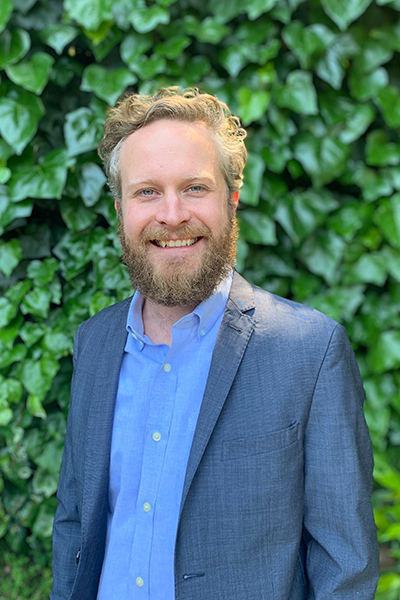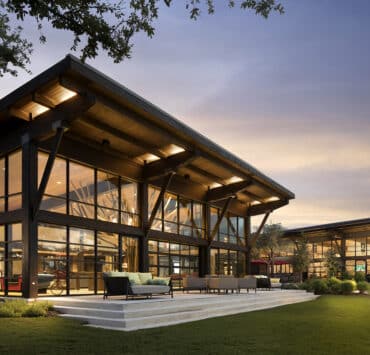|
Getting your Trinity Audio player ready...
|
It’s practically a requirement today for corporations to have a public-facing report about their green accomplishments. One hopes these sustainability drivers are authentic—as is the business culture that celebrates it—and that they should have a net-positive effect in decarbonizing the economy. But is it enough?

Tristam Coffin goes beyond the oft gauzy assertions and works to develop the nuts-and-bolts tactics that make enterprise operations truly environmentally sound, to the best of what’s reasonably and affordably strategic and possible.
Coffin’s venture is Effecterra, a sustainability and technical services consultancy based in Reno, Nevada, where he acts as chief operating officer. Prior to launching the start-up in March 2021, he said farewell to a 12-year tenure at Whole Foods Market, where he served as an energy and maintenance project manager and later the company’s director of sustainability and facilities for the northern California region. That was an uber-green job in an even greener region, providing Coffin with best-in-category expertise and making him ripe to cofound Effecterra.
Effecterra’s goal is to help companies eliminate carbon emissions. Coffin’s skills, and those of the consortium of engineers and other specialists he and his partners have assembled in the firm, each work in their specialties for maximizing building, equipment, and operational performance. While they work in a variety of industry verticals, there’s a lot they can do with grocery stores—particularly in refrigeration and HVAC, as well as with overall buildings performance.
“We know refrigeration, HVAC, and refrigerants quite well,” says Coffin, who holds a degree in environmental studies and is a LEED Accredited Professional. From cold storage facilities, original equipment manufacturers of refrigeration/HVAC equipment, to “controlled environment agriculture”—greenhouses, vertical farms, and growth chambers using technology-driven growing methods such as hydroponics and aeroponics—Coffin and team bring quite a bit of know-how to the task.
This goes beyond simply understanding next-generation technologies. From years of making sure the Whole Foods organic ice cream remained at an optimal temperature, the cheeses and cut arugula as well, not to mention navigating the changing requirements of responsible refrigerant gas use and disposal—Coffin understands that place where energy efficiency and merchandising objectives intersect in the retail environment.
Effecterra’s skills can be applied to new construction, but the approximately 40,000 existing grocery stores in the US provide plenty of opportunity to decarbonize the retail environment. According to Progressive Grocer magazine, refrigeration is the highest-ranking component of stores’ energy use, and retailers and refrigeration technology suppliers share an interest in reducing that. Coffin and his team do their best to stay on top of what those technologies are and identify where they can be applied with greatest results.
There are many moving parts, and many people who play a role in energy and resource use. The benefit of using a firm such as Effecterra, says the COO, is the objective approach the firm takes to coordinating them. “We don’t claim to be the ‘be-all, end-all’ in sustainable strategy and design,” Coffin adds. “But our experience tells us to create collaborations for sustainability.” The goal is to break down the proverbial silos, establishing enthusiasm and cooperation among multiple stakeholders in the process.
Corralling those different players in client organizations is just as important as figuring out which technologies should be applied, he says. The approach they take is with three primary strategies: identify innovations, devise methods for most effectively employing those innovations as well as off-the-shelf solutions, and apply data to drive management—improve and repeat.
“In our world, innovation is a requirement,” says Coffin, but many organizations are risk-averse, or they lack the bandwidth to stay on top of where next generation technologies are headed. “We navigate through all this for them. We always ask, ‘Can we drive efficiencies for the organization with new technology, a different combination of existing, or both?’”
How those technologies are applied is the second strategy, which can be multifaceted and quite complex. The third strategy, the use of data to inform decision making, is heavily driven by carbon metrics. “But numbers only get you 90 percent of the way there,” the COO explains. “Human decisions and behaviors are still a part of it.” For anyone working in this industry, there is often a rhetorical blowback on the costs of decarbonization.
“I’ve heard the argument that without business there is no sustainability program,” Coffin says. “But my response is that without a healthy environment—and society—all business is finite. Thankfully it doesn’t need to be a dichotomy; there is a healthy balance to strike and plenty of businesses and economies have proven that the right environmental or climate and social choices are often, if not always, the right economic choice.”
Coffin also holds that commerce should lead in the effort—but it has a long way to go. “Carbon neutrality is not enough,” he says. “Businesses should be aiming to be carbon negative and look to make up for their lifetime emissions. They should be finding ways to protect natural resources and support biodiversity, whether they find the link to this effort in their business or not.
“Sustainability isn’t a burden or even a choice,” he continues. “It’s an opportunity.”


